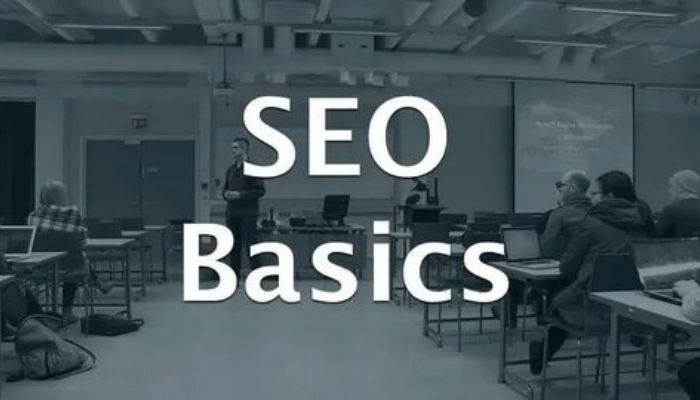Introduction
Search Engine Optimization (SEO) is a term that gets thrown around a lot, especially in the world of digital marketing. But what exactly is it, and why is it so essential for anyone looking to build a successful online presence? This guide will walk you through the basics of SEO, explaining everything you need to know as a beginner. By the end of this guide, you’ll have a solid foundation to start optimizing your website and improve its visibility on search engines like Google.
What is SEO?

SEO stands for Search Engine Optimization. It’s the process of optimizing your website so that it ranks higher in search engine results pages (SERPs). When people search for information online, they rarely look beyond the first page of results. That’s why SEO is crucial — it helps you get your content in front of the right audience, bringing more traffic to your site.
How Search Engines Work
Before diving into SEO strategies, it’s important to understand how search engines operate. Search engines like Google use complex algorithms to crawl, index, and rank websites based on various factors:
- Crawling: Bots (often called spiders) scan the web for new content.
- Indexing: After crawling, the content is stored in a database.
- Ranking: When a user searches for something, the search engine retrieves relevant content from the index and ranks it based on its algorithm.
The Importance of Keywords in SEO
Keywords are the phrases and terms that people type into search engines. Understanding which keywords your audience uses is crucial because it guides your content creation and optimization efforts. There are two types:
- Short-tail keywords: Generally 1-2 words, broad terms (e.g., “shoes”).
- Long-tail keywords: More specific phrases, often 3-4 words or more (e.g., “best running shoes for beginners”).
Long-tail keywords usually have lower search volume but are more specific, making them easier to rank for.
Types of SEO
There are three main types of SEO, each with its unique role:
On-Page SEO

On-page SEO involves optimizing the content and HTML of your web pages. This includes:
- Keywords
- Title tags
- Meta descriptions
- Header tags
- Image optimization
Off-Page SEO
Off-page SEO refers to activities that happen outside your website but affect its ranking. The primary focus is on building high-quality backlinks from reputable sites, which signals to search engines that your site is trustworthy.
Technical SEO
Technical SEO ensures that your website meets the technical requirements of search engines. This includes:
- Website speed
- Mobile-friendliness
- Secure connections (HTTPS)
Keyword Research: The Foundation of SEO
Keyword research is a critical step in the SEO process. It helps you understand what your audience is searching for and how to tailor your content to meet their needs. Use tools like Google Keyword Planner, Ahrefs, or SEMrush to find keywords relevant to your niche. Always keep in mind the intent behind a keyword — is the user looking for information, trying to buy something, or just browsing?
On-Page SEO Best Practices
Optimizing Content
Content is king when it comes to SEO. Ensure your content is informative, engaging, and aligned with user intent. Use keywords naturally throughout the text without overstuffing.
Title Tags and Meta Descriptions
Title tags and meta descriptions are what users see in search results. Crafting compelling and keyword-rich title tags can significantly impact your click-through rates.
Header Tags (H1, H2, H3, etc.)
Use header tags to structure your content. This makes it easier for readers to follow and helps search engines understand the hierarchy of your information.
The Role of Content in SEO
High-quality content attracts visitors and keeps them on your site longer, which is an important ranking factor. Regularly updating your content ensures it remains relevant and boosts your site’s chances of ranking higher.
Off-Page SEO Strategies
Building Backlinks
Backlinks are links from other websites that point to your site. High-quality backlinks can boost your credibility, making search engines view your content as authoritative.
Social Media and SEO
Social signals, like shares and likes, can indirectly impact your SEO. Being active on social platforms helps increase your content’s reach and drives more traffic to your site.
Technical SEO Essentials
Site Speed
Fast-loading sites provide a better user experience, which can lead to higher rankings. Tools like Google PageSpeed Insights can help identify and fix speed issues.
Mobile Optimization
With more users accessing the web via mobile devices, having a mobile-responsive site is no longer optional. Google prioritizes mobile-friendly websites, so make sure yours is optimized.
Secure Websites (HTTPS)
Search engines favor secure sites, so switching to HTTPS is a must. It ensures data privacy and builds trust with your visitors.
Local SEO: Reaching Local Customers
Local SEO helps businesses target customers in their area. Optimizing your Google My Business profile and encouraging local reviews can improve your chances of appearing in local search results.
Measuring SEO Success
Key Performance Indicators (KPIs)
Monitor metrics like organic traffic, bounce rate, and conversion rates to gauge your SEO performance. Use tools like Google Analytics and Google Search Console for insights.
Common SEO Mistakes to Avoid
Some common pitfalls include keyword stuffing, ignoring mobile users, and neglecting to build quality backlinks. Avoid these mistakes to improve your chances of SEO success.
The Future of SEO: Trends to Watch
Voice search, AI, and user experience (UX) are becoming increasingly influential. Staying updated with these trends can give you a competitive edge.
Conclusion
SEO is a journey, not a destination. While it may seem overwhelming at first, understanding the basics and applying best practices can make a big difference. Start small, keep learning, and watch your website’s ranking grow over time.
FAQs
- What is the difference between SEO and SEM? SEO is about organic search results, while SEM (Search Engine Marketing) includes paid advertising alongside SEO.
- How long does it take to see results from SEO? SEO is a long-term strategy, and it may take several months to see significant results.
- Can I do SEO on my own, or should I hire an expert? You can certainly learn and apply SEO basics yourself, but hiring an expert can accelerate the process and provide more sophisticated strategies.
- Is SEO a one-time process? No, SEO requires continuous effort and updates to maintain and improve rankings.
- How can I stay updated with SEO changes? Follow industry blogs, attend webinars, and engage with SEO communities to stay informed about the latest trends and updates.




